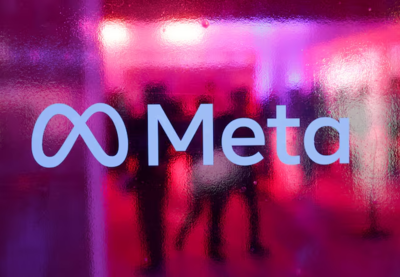
In the high-stakes world of artificial intelligence, talent is the ultimate currency. Yet, even for a company with deep pockets like Meta, attracting and retaining the brightest minds is proving more difficult than expected. According to WIRED, at least three researchers have resigned from Meta’s newly launched Superintelligence Lab just two months after CEO Mark Zuckerberg announced the initiative. Two of the departing researchers have returned to OpenAI, the very company they had once left, underscoring the challenges Meta faces in keeping top talent engaged in a fast-evolving AI landscape.The sudden departures raise questions about whether Meta can truly compete in the race for artificial general intelligence.
Early departures signal turbulence
Avi Verma, formerly a researcher at OpenAI, and Ethan Knight, who had worked at both OpenAI and Elon Musk’s xAI, have left Meta after brief stints, WIRED confirmed. Rishabh Agarwal, who joined the tech giant in April to work on generative AI projects before moving to Meta Superintelligence Labs, announced publicly on X that he would be leaving as well. “It was a tough decision not to continue with the new Superintelligence TBD lab, especially given the talent and compute density,” Agarwal wrote. “But after 7.5 years across Google Brain, DeepMind, and Meta, I felt the pull to take on a different kind of risk.” Adding to the wave of departures, Chaya Nayak, Meta’s director of generative AI product management, has left the company to join OpenAI on special initiatives, according to WIRED. Meta spokesperson Dave Arnold described such exits as normal, noting, “During an intense recruiting process, some people will decide to stay in their current job rather than starting a new one.”
The stakes were high from the start
Zuckerberg aimed to make Meta a leader in artificial general intelligence by offering nine-figure pay packages to lure top researchers, packages more reminiscent of professional sports contracts than tech salaries. The company also attempted to accelerate its progress by inking technical collaboration deals with AI startups like Midjourney, which specializes in AI-generated images and videos. Meta’s new chief AI officer, Alexandr Wang, recruited from Scale AI, said the deal would prioritize producing AI videos, likely as a step toward monetizing AI capabilities across platforms such as Facebook and Instagram. Even as Meta tried to secure talent, OpenAI executives reportedly felt rattled. CEO Sam Altman called Meta’s hiring efforts distasteful in an internal memo, noting, “I’ve lost track of how many people from here they’ve tried to get to be their Chief Scientist.” The tension underscores how competitive the AI race has become, not just in terms of innovation, but in acquiring people capable of pushing boundaries.
Leadership in flux
Shengjia Zhao, a former OpenAI researcher who played a pivotal role in ChatGPT’s development, joined Meta as chief scientist of the Superintelligence Lab. Zhao even signed employment paperwork at OpenAI before committing to Meta. “Shengjia cofounded MSL and has been our scientific lead since day one,” said Dave Arnold. “We formalized his role once our recruiting had ramped and the team had taken shape.” However, frequent reorganizations and internal bureaucratic challenges have made it difficult for the lab to achieve stability. Meta’s AI teams were recently split into four groups, a move that reflects ongoing structural shifts aimed at streamlining research but also hints at internal friction.
Lessons for students and professionals
The turbulence at Meta offers insights beyond Silicon Valley boardrooms. For aspiring AI researchers, it demonstrates that innovation requires not only technical skill but also careful consideration of work culture, alignment of vision, and professional growth. It also highlights the importance of agility, being willing to pivot when an environment no longer supports one’s ambitions. For educators and policymakers, the story is a reminder that even the most well-funded initiatives can face human challenges. Talent retention, team cohesion, and organizational clarity remain as important as cutting-edge technology in driving transformative outcomes.
The AI race is more than code
Meta’s Superintelligence Lab may still find its footing, but the early exits show that building the future of artificial intelligence is as much about people as it is about machines. In a field where curiosity, risk-taking, and collaboration are critical, even the most generous incentives cannot guarantee commitment. As Meta recalibrates its strategy, the lesson is clear: The next frontier of AI depends on nurturing the human minds that dare to imagine it.TOI Education is on WhatsApp now. Follow us here.






